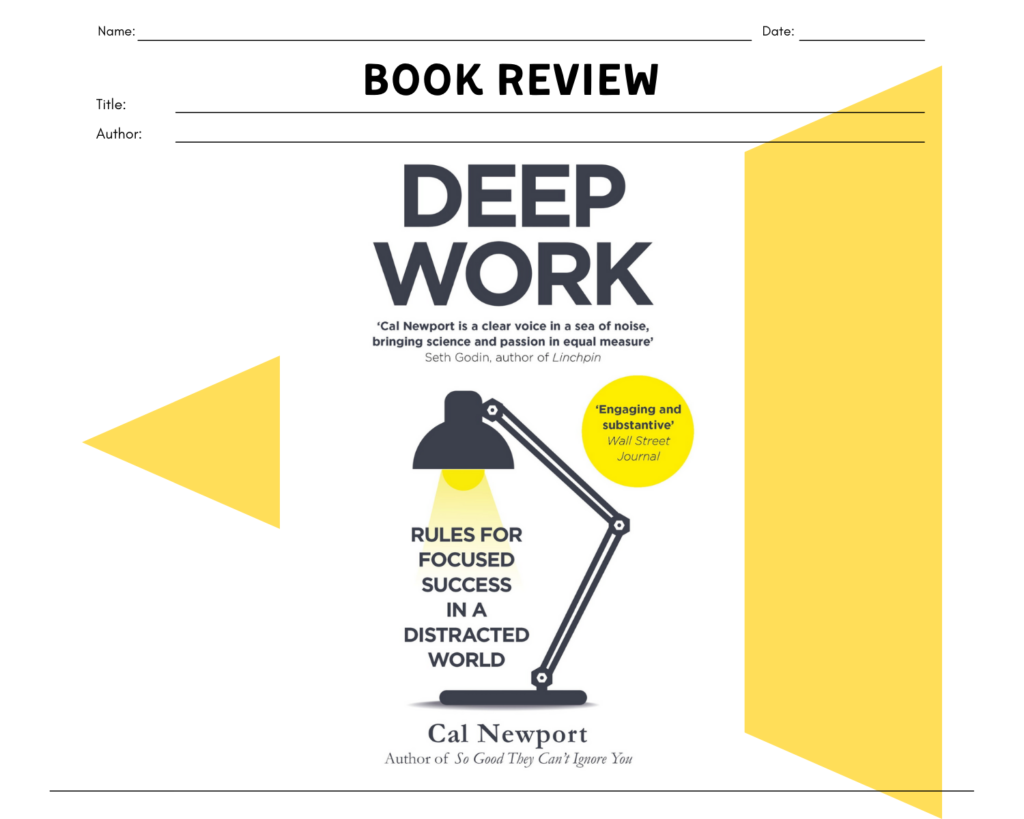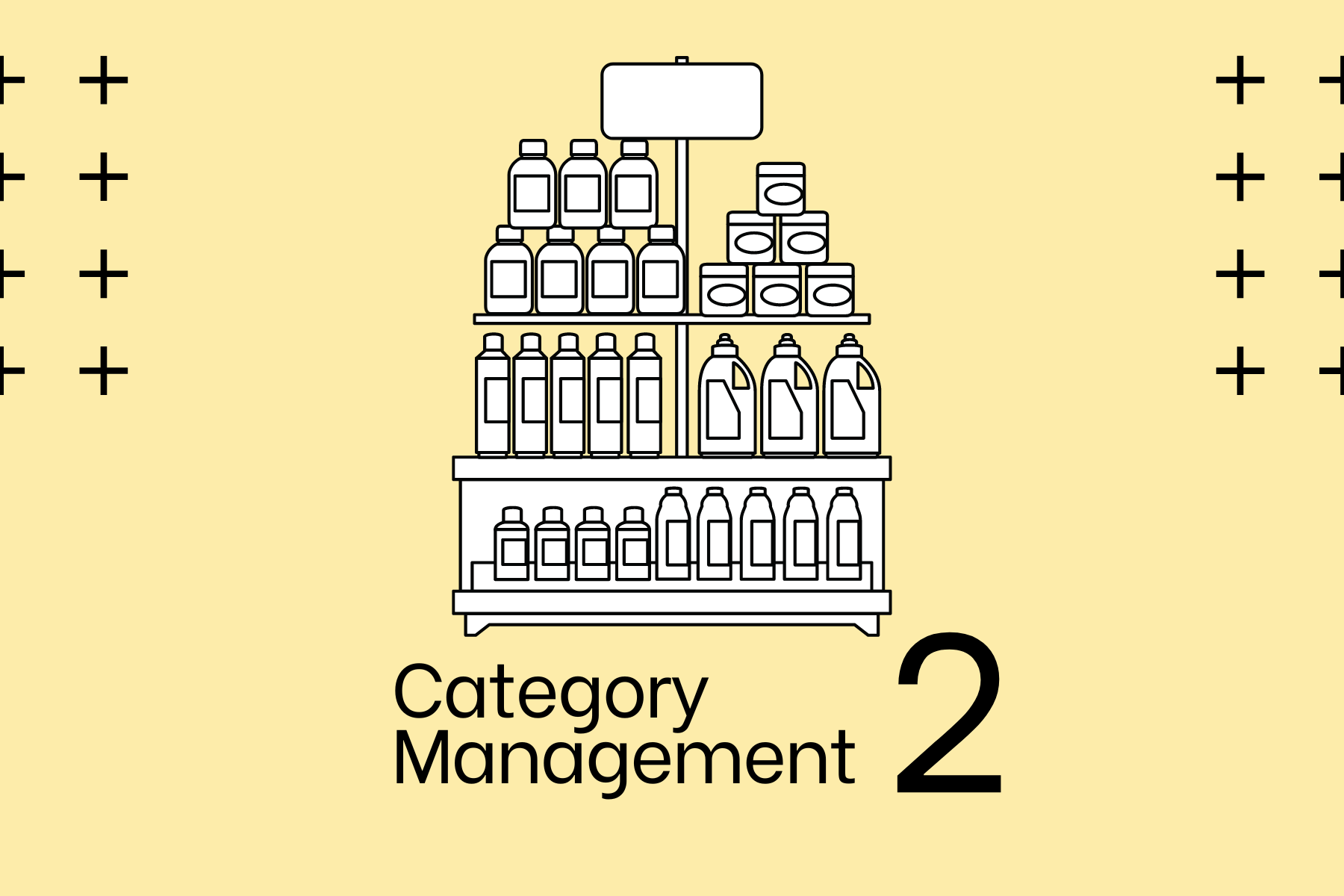“I will live the focused life, because it’s the best kind there is. “Winifred Gallagher.
A great book with definitely some thought-provoking ideas and actionable advice. Yet to speed up this almost 300 pages of reading, I had to skip some descriptive part to the conclusion, because there are just way too many real life examples and personal stories. Always prefer the length of One Minute Manager Series, easy and concise with 1-2 hours of reading, just right to cover the topic – little book with big impact.
Some notes below:
Deep Work: Professional activities performed in a state of distraction-free concentration that push your cognitive capability to their limits. These efforts create new value improve your skill, and are hard to replicate.
Shallow Work: Noncognitively demanding, logistical-style tasks, often performed while distracted. These efforts tend to not create much new value in the world and are easy to replicate.
In this new economy, 3 groups will have a particular advantage:
- those who can work well and creatively with intelligent machines
- those who are the best what they do
- and those with access to capital
2 core abilities for thriving in the new economy
- the ability to quickly taste hard things
- the ability to produce at an elite level, in terms of both quality and speed
High-quality Work Produced=(Time Spent) x (Intensity of Focus)
Attention residue: something remains stuck thinking about the original task when you switch tasks, and people experiencing attention residue are like to demonstrate poor performance on that next task.
Exception for elite level management: A good chief executive is essentially a hard-to-automate decision engine. It’s better to hire 3 smart subordinates to think deeply about the problem and then bring their solutions to the executive for a final decision. This discussion is more on knowledge worker, but the skill is essential for the most.
3 business trends that actively decrease people’s ability to go deep:
- open space working
- Instante messaging
- The push for content producers of all types to maintain a social media presence
The principle of least resistance: in a business setting, without clear feedback on the impact o f various behaviours to the bottom line, we will tend toward behaviours that are easiest in the moment. (Such as instant message, such as constantly checking and replying emails).
Busyness as proxy for productivity: in the absence of clear indicator of what it means to be productive and valuable in their jobs, many knowledge workers turn back toward an industrial indicator of productivity: doing lots of staff in a visible manner.
We no longer discussing the trade-offs surrounding new technologies, balancing the new efficiencies against the new problems introduced. If it’s high-tech, we began to instead assume, then it’s good.
So they all lead to these realities that
- deep work is hard and shallow work is easier
- In the absence of clear goals for your job, the visible busyness that surrounds shallow work becomes self-preserving
- Our culture has developed a belief that if a behaviour relates to the internet, then it’s good – regardless of its impact on our ability to produce valuable things.
Role of attention plays in defining the quality of our life: what we choose to focus on and what we choose to ignore. “This disease (cancer) wanted to monopolise my attention, but as much as possible, I would focus on my life instead. Moves, walks, and a 6:30 martini.” Science writer Winifred Gallagher.
We tend to place a lot of emphasis on our circumstances, assuming that what happens to us (or fails to happen) determines how we feel. Our brain instead construct our worldview based on what we pay attention to. As Gallagher summarises: “Who you are, what you think, feel and do, what you love – is the sum of what you focus on.”
Flow: The moments usually occur when a person’s body or mind is stretched to its limits in a voluntary effort to accomplish something difficult and worthwhile. Csikszentmihalyi 1990
Ironically, jobs are actually easier to enjoy than free time, because like flow activities they have built-in goals, feedback rules, and challenges, all of which encourage one to become involved in one’s work, to concentrate and lose oneself in it. Free time, on the other hand, is unstructured, and requires much greater effort to be shaped into something that can be enjoyed.
The Rules:
Rule #1: Work Deeply. Add routines and rituals to your working life.
- Decide your depth philosophy
- Monastic: no shallow work
- Bimondal: divid of time in a week or month
- Rhythmic: chain of tick, e.g. 5:30-6:30 am (most common)
- Journalistic: whenever
- Ritualise the schedule
- Where and for how long
- How, ground rules
- How to support (start with a coffee, light exercise)
- Be lazy. Idleness is as indispensable to the brain as vitamin D is to the body, and deprived of it we suffer a mental affliction as disfiguring as rickets. Inject regular and substantial freedom from professional concerns into your day.
Rule #2: Embrace Boredom (very important to me).
- Train yourself in daily work. If every moment of potential boredom in your life – say, having to wait five minutes in line or sit alone in a restaurant until a friend arrives – is relieved with a quick glance at your smartphone, then your brain has likely been rewired to a point where, like the “mental wrecks” in Mass’s research, it’s not ready for deep work – even if you regularly schedule time to practice this concentration.
- Work with great intensity. Deep work requires levels of concentration well beyond where most knowledge workers are comfortable.
- Productive meditation: to take a period in which you are occupied physically but not mentally – asking, jogging, driving, showering – and focus your attention on a single well-defined professional problem.
- Training of memorising a deck of cards: 5 rooms, 10 items, and associate the 52 cards with 52 persons. To train your unwavering attention.
Your ability to concentrate is only as strong as your commitment to train it.
Rule # 3 Quit Social Media.
- How we used to any-benefit mind-set. Instead, we should adopt the craftsman approach to toll selection: identify the core factors that determine success and happiness in your professional and personal life. Adopt a tool only if its positive impacts on these factors substantially outweigh its negative impacts.
- Put more thoughts into your leisure time: Most people tragically don’t realise the potential of the 16 hours left in the day beyond these work related 8 hours.
- If you give your mind something meaningful to do throughout all your waking hours, you will end the day more fulfilled, and begin the next one more relaxed, than if you instead allow your mind to bathe for hours in semiconscious and unstructured web surfing.
Rule #4 Drain the Shallows.
- Schedule every minute of your day
- Quantify the depth of every activity. If not sure if it’s a shallow work, ask yourself, how long would it take (in months) to train a smart recent college graduate with no specialised training in my field to complete this task?
- Ask your boss for a shallow work budget (alignment)
- Fixed-schedule productivity: fix the firm goal of not working past a certain time, then work backward to find productivity strategies that allow me to satisfy this declaration.
- Become hard to reach
- Tip #1 Make people who send you email do more work
- Tip #2 To more work when you send or reply to emails. Process-centric response. No bounce of responsibilities.
- Tip #3 Don’t respond.
Latest Blogs
Covid has changed the entire humanity. Amid all the negatives from hos...
我新认识了一个好朋友。 到了这个年纪,认识一个新的好朋友很不容易。 因为是爸爸朋友的孩子,又是高中校友,我们知道彼此超过20年,但也只是3年...
Following “Category Management – 1 The Basics”, is t...
As originated from retail business, Category Management (Catman) was s...




